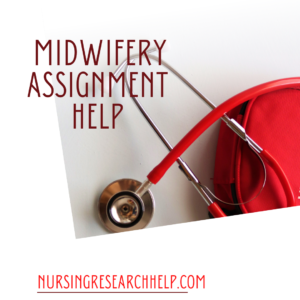Midwifery questions and answers 2022
Midwifery Questions and Answers
Midwifery is a profession that provides care to women during pregnancy, labor, and the postpartum period. These professionals are also trained in gynecological care and family planning. They work in primary care settings and are required to complete an educational program to become a nurse midwife. There are common midwifery questions and answers as provided in this article. Read on
Discuss the roles of midwives
Nurse midwives provide care to women during pregnancy, labor, and the postpartum period
Certified nurse midwives are licensed, experienced registered nurses who have completed an accredited nurse midwifery education program. They have additional training in pregnancy and labor and have passed a national certifying exam. Certified midwives can practice in all 50 states. A midwife can also prescribe medications and order lab tests.
Nurse midwives also provide comprehensive gynecological care. They provide preventative care to women, including annual physical exams and birth control. They also offer educational services to women and their families about reproductive health and education. They can also refer patients to a physician if necessary. They work in a variety of settings, including hospitals, community health centers, Indian Health Service clinics, and private offices. Interested students can take challenging courses in high school to gain the knowledge needed to become a nurse midwife.
While most antenatal care is provided by midwives, some women opt to use an obstetrician. While midwives are usually present during private obstetrician appointments, they may not be present throughout the labor and delivery. In such cases, midwives will update the obstetrician on the woman’s progress, and midwives may call an obstetrician if complications arise during labour.
If you’re pregnant and considering hiring a midwife, be sure to meet with both providers. They should both be familiar with your medical history and concerns, and they should be able to discuss options for prenatal care and postpartum care. Ultimately, it’s up to you to decide which option will provide the best care for your unique situation.
They also offer gynecological care and family planning services
Midwives provide a variety of services related to gynecological care and childbirth. In addition to providing pregnancy care, they can
also help with family planning. Midwives are trained to ask questions and collaborate with their patients to make the best healthcare decisions. They are skilled and compassionate caregivers who can provide safe and personalized care to women throughout their pregnancy.
Midwives are registered nurses who specialize in prenatal care and childbirth. They also provide comprehensive gynecological care and screening for sexually transmitted diseases. They can help you decide on the best method of contraception and other family planning services. They are sensitive to the needs of young women during their first gynecological exam, treat minor gynecological infections, and refer you to a doctor for mammograms.
They work in primary care settings
One of the most common questions asked during a midwifery interview is about your commitment to learning. Midwives must continually update their knowledge and skills to stay relevant in their field. When asked about this topic, candidates must explain their ongoing learning plans and share resources that they utilize.
Midwives play an important role in primary care. They often are the first health care professional to visit a patient, so the quality of their assessment and care are crucial. In addition, they have a strong understanding of the local community and can help shape effective interventions to meet patient needs.
Midwives must be intuitive in identifying and addressing mental health concerns, which can affect patient care. They should be proactive in identifying such issues and referring mothers to appropriate support services. Midwives must also know the importance of collaborative working and be able to discuss how to address any issues they identify.
When choosing a midwife, it is important to consider the cost of their services. Many midwives charge a flat fee, but there are also additional fees for birth kits, ultrasounds, and lab fees. Some midwives also charge for lactation appointments. Before choosing a midwife, it is important to understand the fee schedule and the amount of additional services and fees.
Choosing to become a midwife is an exciting and rewarding career. It allows you to make a real impact on the lives of women and babies. If you are a compassionate person with empathy, this is the perfect career choice. As a midwife, you’ll be able to ease pain for mothers and welcome a new life into the world. During your interview, you should explore the benefits and practical aspects of the position. Many of the benefits that midwives enjoy include high pay and exposure.
They must be graduates of a midwifery educational program
Graduates of a midwifery educational program must have specific prerequisites before they can practice midwifery. For example, the program must be accredited by the National Midwifery Institute (NMI). There is a fee of $500 to $3000 for the program and yearly renewals are required to remain licensed. A nurse may also become a midwife through a secondary educational program, such as the University of Massachusetts, which offers an 18-month second degree program. The University of Pennsylvania, Columbia and Yale also offer a combined nursing and midwifery program.
Midwifery educators must have an overarching philosophy and mission statement to guide their educational programs. They should also acknowledge the fact that student midwives learn differently and should incorporate multiple assessment tools and teaching methods into their curriculum. These tools and methods should be adapted to meet the needs of the diverse learning styles of student midwives and allow students to apply their knowledge in a variety of situations.
A midwifery educational program must also meet the standards set forth by the International Confederation of Midwives. These standards are designed to prepare midwives to provide high-quality care to patients. Graduates of a midwifery educational program must also have an understanding of the needs of childbearing clients.
They are licensed by the New York State Department of Health
Midwifery is a healthcare profession licensed by the New York State Department of Health. It is also covered under the state’s Medicaid program. Although midwives are not required to have a nursing degree, NYS licensing does allow them to practice in the state. Most midwives in the state have other backgrounds.
To become a midwife, you must pass an examination. In addition to taking a licensing exam, midwives must meet the education and experience requirements. If you do not pass the exam, you can apply for a limited permit, which will allow you to practice midwifery under the supervision of a licensed midwife.
To become a certified professional midwife, you must pass the CPM exam and be certified by the North American Registry of Midwives. You will need to provide proof of your certification and attendance at 100 births. In addition, you must complete the obstetric pharmacology and epidemiology courses. You must also sign a legend of drugs and devices.
During the early immigration years, midwives were given priority on ships. Each immigrant group sought midwives of their own culture. As New York became crowded with immigrants, local city health leaders started to develop rules to ensure sanitation and hygiene. These rules also regulated food and water supplies. Midwives began to be registered under the city’s Sanitary Code. In 1911, Bellevue Hospital opened a school of midwifery. The midwives there collaborated with hospital-based physicians and community midwives.
They must develop a rapport with patients
Midwives have to develop a rapport with patients to provide optimum care. Such rapport can foster a therapeutic relationship and provide emotional support to patients. Patients go through a range of experiences, from the first signs of illness to the long-term effects of treatment. Moreover, they often suffer from multiple comorbidities. The role of a midwife in a cancer patient’s journey is critical. It involves helping the patient integrate new information and building up a capacity for adaptation.
Developing a rapport with patients is an important skill in nursing, but it requires more than just people skills. Some essential qualities of a good nurse include calmness, confidence, and vigilance. In addition, the ability to please patients can go a long way in easing a patient’s stay in the hospital.
To foster rapport with patients, midwives must learn to be attentive to their clients’ emotional needs. This requires using specific tools, such as active listening and problem-solving. Taking the time to understand the patient’s pain and discomfort is a vital part of being a midwife. In addition, midwives must be mindful of their body language, tone of voice, and location of the conversation.
During the interview, participants will be asked to reflect on the development of rapport during videoconferencing with patients. In addition, participants will be asked to share the strategies they have used in building rapport during a videoconferencing session. The study team will ask participants to discuss the challenges that they faced in developing rapport with patients using this type of communication.



